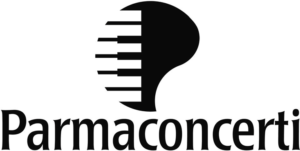How to Forgive Yourself: Letting Go of Guilt and Shame
To navigate shame effectively, individuals must identify its roots, challenge the negative self-beliefs it fosters, and cultivate self-compassion. With the help of our compassionate team and professional support, you can embark on a journey of hope, empowerment, and successful recovery. Remember, in the journey to overcome addiction, letting go of guilt and shame plays a vital role. Finding a balance and approaching these emotions with understanding and compassion is essential for your recovery. Therapy can offer a safe space for you to explore these complex emotions, understand their root causes, and develop strategies to cope with them effectively. A “failure” is the ideal opportunity to learn how to do better in the future.

The weight of shame can hinder progress in recovery, causing feelings of hopelessness and impeding personal growth. Dawn has been providing individual nutritional counseling and group counseling for more than 20 years. Her approach has been to work beyond education and training, focusing on real-life practical applications and tools. At Anchored Tides Recovery, we offer individual therapy, group sessions, and specialized workshops that focus on emotional well-being, including addressing shame and guilt. In the U.S., only 10% of people struggling with some form of addiction actually get help. It may seem like you’ll always feel this way, but research shows that shame diminishes during the treatment process.
Ways to Overcome Guilt and Shame in Recovery
At 12 South Recovery, our experienced team of addiction and mental health experts can provide you with the support you need to overcome these emotions effectively. Are you struggling with overwhelming feelings of shame and guilt due to addiction or mental health issues? At 12 South Recovery, we understand the challenges you face and are here to help you overcome these debilitating emotions.
The focus of therapy is on helping clients build a life worth living, rather than fixating on past mistakes or shortcomings. Shame is an unpleasant emotion that arises when one sees themself as defective, dysfunctional, or dishonorable, whereas guilt is a terrible feeling brought on by one’s actions. Recovery from addiction to substances is helped by recognizing the difference between guilt and shame. Doing so clarifies the nature of the felt emotion and the appropriate course of action. When individuals feel guilty or ashamed, they may turn to harmful coping mechanisms to alleviate the effect on their mental and physical health.
Mindfulness and Meditation Practices for Shame and Guilt
Acknowledging beliefs and events connected to shame put you on the roadmap to recovery, and the journey can take you to a place you’ve never imagined. Once you start reframing your problems by looking at some of the positive aspects they add to your life, your perspective changes immensely. In 2010, while getting my post-doctoral work at UCLA, I conducted a study to find out why only 10% of the 24 million U.S. residents who have substance use disorders seek treatment annually. Shame involves the perception of oneself as a failure or feeling unacceptable to others. Shame can involve feeling “flawed” “unworthy” or “not good enough”. Practice forgiving others, helping others and doing good for others.

It’s not surprising why people who have access to a solid support system are more likely to achieve their goals and maintain long-term recovery. Spend some time thinking seriously about how your actions or inaction have harmed the person. The good news is that you can resolve to change your behavior and forgive yourself at the same time. In fact, the more you forgive yourself, the more you will be motivated to change. Self-forgiveness opens the door to change by releasing resistance and deepening your connection to yourself. We are the seasoned critics, we have lived our whole lives trying to look inward and identify who we are and what we are doing feeling all the mistakes on the deepest level.
Tonia Stephens
The next healing practice on our list is practising self-forgiveness. Although it may be easier said than done, this is a crucial step in addiction recovery. It is important to remember that everyone makes mistakes, and some of these mistakes may be bigger https://ecosoberhouse.com/ than others. First, you need to acknowledge and recognise these past mistakes. This recognition can include apologising to those that you may have harmed from the past, going through various types of therapy, and attending support group meetings.

By addressing these underlying issues, individuals can promote healing and adopt a more compassionate approach to their journey toward recovery. Moreover, societal expectations and cultural influences can further guilt and shame in recovery amplify these emotions, making it challenging for individuals to break free from the cycle of shame and guilt. It is important for individuals in recovery to understand how guilt impacts their healing process.
But once you can free yourself from those feelings, you can get back on track to the good life that recovery brings. There are ways to unlock the struggle door, opening a way to remove shame and get back towards your freedom from addiction or substance abuse. To continue to live a life that is free of feelings of guilt and shame, acknowledge your value system. Review what you believe is right and wrong to solidify your value system.
- Many people list issues with “guilt and shame” as a critical factor related to substance abuse issues and addiction.
- Self-compassion requires us to consciously acknowledge and accept the pain caused by our previous wounds.
- Peer support groups like Alcoholics Anonymous or Narcotics Anonymous provide participants with regular meetings where they can share their experiences openly without fear of judgement.
- Of course, addicts aren’t the only people who feel guilt and
shame.
One way to get out of the cycle is to own up to what we have done. Taking responsibility for the wrongs we have committed is a part of maturing and growing as a person. Admitting that you have made mistakes and done something wrong stops the cycle and frees us from our prison of guilt and shame.


